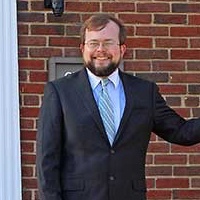 Chase City Estate Lawyers, Virginia
Chase City Estate Lawyers, Virginia
Sponsored Law Firm
-
 x
x

Click For More Info:
-
Price Benowitz LLP
409 7Th St Nw Suite 200 Washington, DC 20004» view mapEstate Law Working Relentlessly For You
Our firm was built on the understanding that comprehensive representation does not begin and end in the courtroom.
202-600-9400
Sponsored Lawyers
1-3 of 3 matches
Criminal, Business, Traffic, Power of Attorney, Estate
Glen Henkle is a lifelong Virginian whose family has proudly called this state home for over 200 years. Although born in Richmond, he was raised and attended school in Amelia County and still makes his home there. His upbringing in a rural area taught him the value of hard work, faith, family, community, and that bad things do happen to good people. As a state prosecutor, he was a strong advocate for crime victims, and today he tries to bring that same strength of advocacy to bear for all his clients, both civil and criminal. Glen has successfully prosecuted or defended (or both) most of the common crimes in Virginia, including, but not limited to, abduction, assault, attempted murder, bad check, burglary, conspiracy, credit card offenses, destruction of property, disorderly conduct, domestic assault, DUI, driving suspended, drug possession, drug distribution, forgery/uttering, habitual offender, larceny, malicious wounding, probation violation, reckless driving, robbery, sexual assault, speeding, and underage possession of alcohol. Additionally, as a prosecutor, Glen successfully handled many civil forfeiture cases in which the state sought to have assets, seized as a result of narcotics investigations, forfeited to the government for the use of law enforcement. Having had the experience of building and presenting cases for the government, Glen is well equipped to defend his clients' interests by finding the weaknesses in any opponent's position and exploiting them. He founded this firm in 2012 to share his experience and skills with the public, help them navigate the often complicated and confusing world of laws and courtrooms, and to strive for the best possible outcome for each client, whether in the courtroom or elsewhere.
(more)


 Seth Price Washington, DC
Seth Price Washington, DC AboutPrice Benowitz LLP
AboutPrice Benowitz LLP Practice AreasExpertise
Practice AreasExpertise

